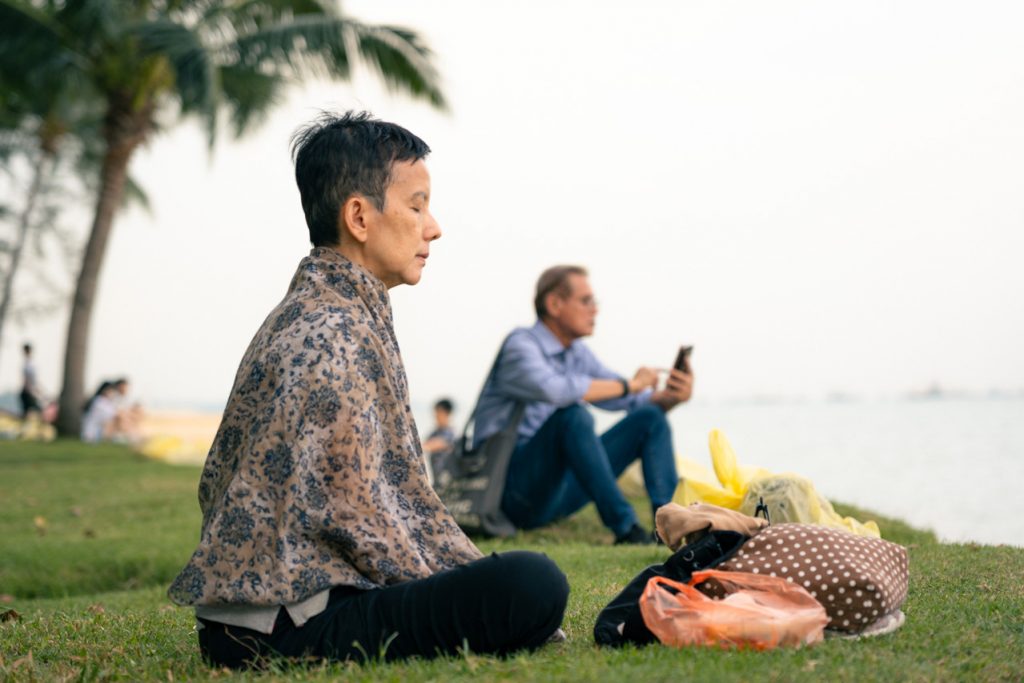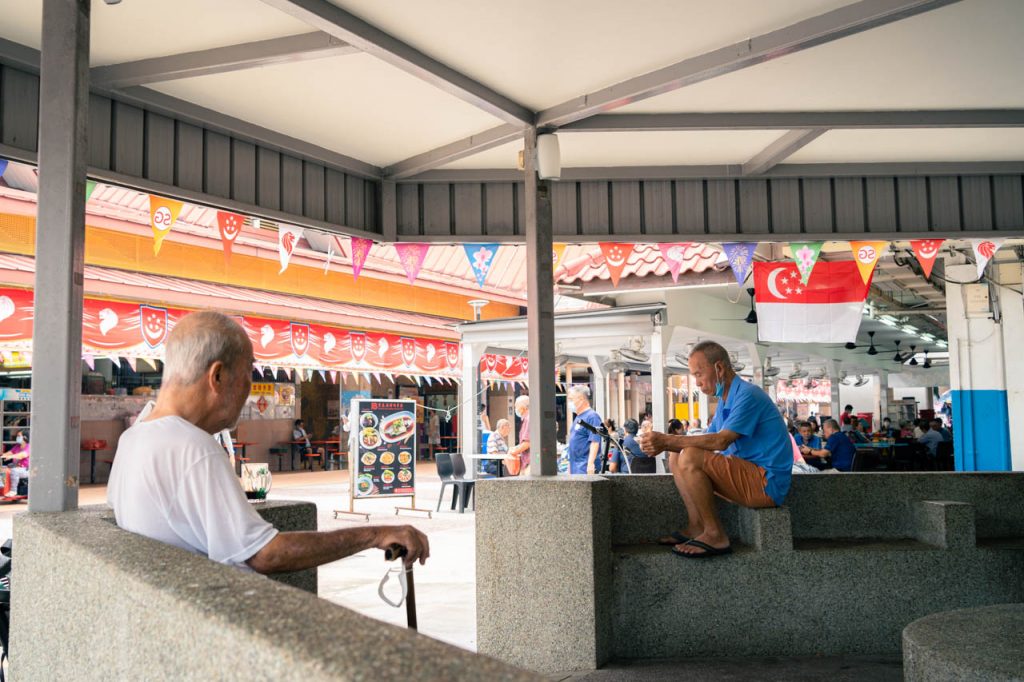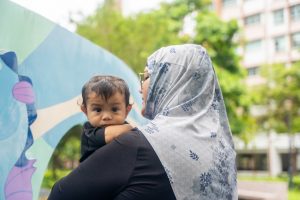Top image: Stephanie Lee / RICE File Photo
The mention of mental health in last year’s Budget debates was a first, and a milestone of sorts. But that’s all it was—a milestone.
Yet, I held on hope. On February 14, I watched Deputy Prime Minister (DPM) and Minister for Finance Lawrence Wong deliver his Budget 2023 speech from the public gallery at Parliament House, eager to find out if any additional strides would be made in the matter.
ADVERTISEMENT
By the time the last minister filed out of the room, it became clear that the answer was “not really”.
In some ways, perhaps it was fitting that the speech was on Valentine’s Day. A bulk of the grants and initiatives announced are geared towards couples with kids or those who are planning to have kids.
With the doubling of paid paternity leave, improved housing support, and increased Baby Bonus, DPM Wong may as well have looked straight into the camera and implored Singapore’s young married couples to start getting busy right that instant. There were also the usual assistance measures to help Singaporeans cope with rising costs and inflation.
But what of mental health? The issue received little to no attention in DPM Wong’s recent address—a step backwards from last year.
Where’s That Mental Health Office?
We seemed to be on track to making some real changes last year, with the formation of the Covid-19 Mental Wellness Taskforce in October 2020 to address the pandemic’s impact on mental health.
Prime Minister Lee Hsien Loong also mentioned on World Mental Health Day that ensuring access to quality mental healthcare for Singaporeans is “a major priority“.
So the complete lack of focus on mental health this year was a little disconcerting, given that in the last budget debates, there had been conversations around the possibility of setting up a national mental well-being office.
With face masks all but obsolete and the pandemic effectively over—at least, it feels that way—has mental health taken a backseat to jobs, economy and housing?
Last March, Senior Minister of State for Health Dr Janil Puthucheary confirmed that the Interagency Taskforce on Mental Health and Well-being—expanded from the Covid-19 Mental Wellness Taskforce—was looking into setting up the office.
He also identified four areas of focus: Strengthening family support for parents and youths, improving mental health literacy, boosting access to mental healthcare, and employment support for people with mental health conditions.
ADVERTISEMENT
Mental health advocates including Asher Low, executive director of non-profit organisation Limitless, and Porsche Poh, executive director of Silver Ribbon (Singapore), praised the move at the time and said it would greatly facilitate the coordination of mental health initiatives.
Fast forward nearly a year, and there’s still no concrete news about establishing said office. The latest update we have is from last October, when the Ministry of Health responded to Nominated MP Dr Shahira Abdulla’s query on the progress of the project.
Apparently, the interagency task force had consulted the public on its recommendations and was “currently reviewing the feedback” obtained. One would believe that the enthusiasm from the advocates working in the field would be enough to push the initiative through by now—or at least fast-track it.
Improving mental health support doesn’t just stop at the setting up of a permanent agency. Mental health advocates also mentioned to The Straits Times other gaps that needed plugging, including high case numbers, lack of funding for social service agencies, and quality of care.
All arguably pressing issues that need fiscal support. But seemingly not worth a mention in this year’s Budget speech.

The Case for More Mental Health Resources
If it isn’t clear by now, we Singaporeans need help.
Even though we’re back in DORSCON green, there’s no denying that the pandemic—now in its third year—has taken a toll on us all.
Amid stressors such as disruptions to livelihoods, mass layoffs, and worries over friends and family falling ill, the Institute of Mental Health has seen increased demand for its services since the circuit breaker period in 2020.
We’ve also emerged as the most overworked in the Asia Pacific region and we apparently feel the least psychologically safe in the office compared to our other Southeast Asian counterparts.
The statistics vary but the bottomline is this: We’re not happy. In MOH’s National Population Health Survey from 2021, young adults aged between 18 and 29 seem to have it the worst, with 21.5 percent exhibiting poor mental health.
The elderly are another group we shouldn’t forget, especially with our rapidly ageing population. Of the 378 reported suicides in 2021, those aged 60 and above accounted for 112 cases.
Seniors face their own unique set of issues, with social isolation and health concerns being major causes of elderly depression.

Working On Ourselves
Perhaps it’s the bleakness of how most of us feel contrasted with the overt babymaking messaging that makes this year’s budget speech particularly jarring.
ADVERTISEMENT
I’m turning 29 this year, and I am still not sure if I want to have kids yet. Even with all of Budget 2023’s dangling carrots.
I’m not suggesting that one should completely work through their mental health issues before having kids. That’s unrealistic, and people with mental health conditions should absolutely have children if they want to. But in discussing huge life choices like raising children and building a comfortable home for them, mental health can’t be ignored.
Parenting is demanding as hell. It’s easy to see why young Singaporeans who are already grappling with mental well-being may not want to take the leap into parenthood.
Those who are managing mental illnesses while raising kids also need support. Experts say parents with depression can find child-rearing extra fatiguing, while those with post-traumatic stress disorder can get overwhelmed. When their mental illness affects their parenting, it also triggers feelings of guilt and shame.
Financial grants, extra paternal leave, and housing benefits are attractive for sure. But they can only do so much to encourage Singaporeans to start families.
Dr Shahira probably best encapsulated the importance of these conversations when she told The Straits Times that “mental health issues permeate all ministries”.
“I feel it is very important that for every decision and policy we come up with, we think of mental health as something that is important, not just an aside.”
Sure, we’ve made big strides in mental health awareness in the past few years. But there’s still work to be done in building a happier Singapore if we want to build a Singapore made for families.





